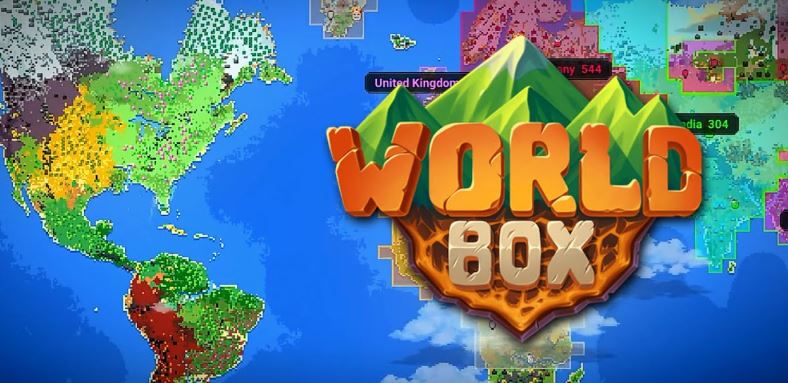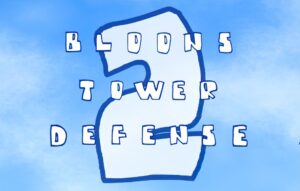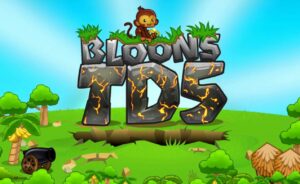This is an engaging sandbox simulator that lets players create, destroy, and shape entire worlds. Developed by Maxim Karpenko, the game offers a unique blend of creativity and chaos, allowing players to act as a powerful deity overseeing diverse civilizations, natural elements, and mythical creatures.
With its intuitive mechanics and endless possibilities, this game version invites both casual gamers and creative minds to experiment with world-building on a grand scale.
In WorldBox, players can generate different terrains, spawn various creatures, and influence the development of societies. Whether you want to watch civilizations thrive or cause apocalyptic destruction, the game delivers a sandbox experience full of surprises.
This article will cover the game’s development, gameplay mechanics, modes, features, tips, and system requirements, offering a comprehensive guide for new and experienced players alike.
File size
Development and Release of WorldBox
It was developed by independent creator Maxim Karpenko and first released in early access in 2018. Since then, it has undergone continuous updates and improvements, gaining popularity for its sandbox freedom and charming pixel-art style.
The game is available on multiple platforms including PC, mobile devices, and consoles, allowing a wide audience to experiment with its godlike powers.
The developer’s focus was on providing a tool that encourages creativity while also allowing for unexpected interactions between civilizations, natural events, and fantasy creatures.
Over time, new features such as additional creatures, disasters, and gameplay modes have expanded the depth and replayability of WorldBox, making it a beloved choice for players who enjoy sandbox and simulation games.
If you enjoy creative sandbox games like WorldBox, then games like Zoo Tycoon: Ultimate Animal Collection offer equally captivating experiences.
Storyline and Setting of WorldBox
WorldBox doesn’t follow a traditional narrative but creates an open-ended sandbox environment where the story emerges from player actions.
The game is set in a procedurally generated world with different biomes such as forests, deserts, mountains, and oceans. Players can shape the landscape, create lifeforms, and watch as civilizations rise, fall, and interact.
The setting blends elements of fantasy and realism, with mythical creatures like dragons and giants coexisting alongside humans and animals. Players can influence the world with natural disasters like earthquakes, tornadoes, and meteor strikes, creating dramatic scenarios.
The emergent stories in WorldBox come from how these elements interact dynamically, making every world unique and unpredictable.
Game Modes in WorldBox
It offers several modes catering to different play styles:
- Sandbox Mode: The primary mode where players have unlimited freedom to create and destroy worlds, control creatures, and experiment with different elements without restrictions.
- Challenge Mode: Here, players face specific scenarios or challenges, such as defending a civilization from invaders or managing natural disasters to survive certain conditions.
- God Mode: Provides players with divine powers to manipulate the environment and inhabitants directly, including spawning creatures, casting disasters, and altering terrain.
- Simulation Mode: Allows players to observe the world evolve on its own, focusing on watching civilizations develop, fight, and adapt without interference.
Gameplay Mechanics in WorldBox
WorldBox’s gameplay centers around world creation and management, combining strategy with sandbox freedom:
- Elemental Powers: Players control natural elements like fire, water, earth, and wind to shape the environment or cause destruction. Using these powers strategically can lead to thriving ecosystems or catastrophic events.
- Civilization Development: Human tribes and other creatures grow, build villages, wage wars, and form alliances. Monitoring their progress and intervening at the right moments shapes the world’s history.
- Creature Interaction: Different species interact uniquely, from peaceful coexistence to fierce battles. Introducing mythical creatures adds unpredictable dynamics to the simulation.
- Dynamic Environment: Weather, terrain, and disasters affect how civilizations and creatures survive. Players must balance creative construction with natural challenges.
As such as, if you couldn’t get enough of this game, give BeamNG.drive a try—it’s a captivating adventure that will keep you engaged!
Beginner Tips and Tricks
For newcomers, here are some tips to get started:
- Experiment Freely: Don’t be afraid to try different elements and creatures to see how they interact. The sandbox nature encourages creative exploration.
- Observe Before Acting: Watch how civilizations develop and interact before making big changes. Understanding the natural flow helps in making better interventions.
- Balance Creation and Destruction: Mix building and demolishing actions to keep your world dynamic and interesting. Both growth and chaos make the simulation lively.
- Use Save Points: Regularly save your progress to experiment without losing your world, especially before trying risky actions like large disasters.
Important Features of WorldBox Game
This game offers several standout features that enhance the player experience:
1) Extensive Creature and Civilization Variety
From humans and elves to dragons and giants, the game features a wide range of inhabitants, each with unique behaviors and interactions that create complex simulations.
This diversity leads to unpredictable relationships and emergent stories within the sandbox world. Players can witness civilizations rise, clash, and evolve in real-time, making every playthrough unique.
2) Intuitive World-Building Tools
Players have easy-to-use tools for terraforming, spawning creatures, and controlling environmental factors, making world creation accessible and engaging.
These tools also support undo and redo options, encouraging experimentation without penalty. Furthermore, the interface is designed to be beginner-friendly while offering depth for advanced creators.
3) Dynamic Disasters and Events
Natural disasters like volcanic eruptions, floods, and meteor showers can drastically alter the landscape and impact civilizations, adding unpredictability.
Moreover, these events can trigger chain reactions that influence the development and decline of entire regions. Players can also initiate or prevent certain events, influencing the fate of their worlds.
4) Pixel-Art Visuals
The charming pixel-art style gives WorldBox a distinctive look that balances simplicity with expressive detail, enhancing immersion without overwhelming complexity.
The minimalist graphics also help the game run smoothly on a wide range of hardware. Additionally, the art style allows for easy modding and community content creation.
5) Cross-Platform Support
Available on PC, mobile, and consoles, WorldBox ensures players can enjoy their sandbox worlds across devices with smooth performance and consistent updates. Cross-save functionality allows players to continue their worlds seamlessly from any platform. This versatility broadens the player base and keeps the community vibrant.
Advanced Strategies
To master in this game and shape your world like a pro, consider these advanced tactics:
- Combine Elements for Maximum Impact: Use multiple elements together, such as setting fire after creating a drought, to trigger chain reactions that dramatically change your world’s landscape.
- Manipulate Civilizations Strategically: Pay attention to how different factions interact. Encouraging alliances or conflicts at the right time can lead to more dynamic and interesting world developments.
- Control Disasters Precisely: Instead of random destruction, target disasters carefully to weaken specific areas or civilizations, giving you more control over how your world evolves.
- Balance Growth and Decay: Monitor your world’s balance by fostering growth in some regions while letting others decline. This creates a more realistic and unpredictable ecosystem.
- Time Your Interventions: Watch how your world progresses naturally and intervene at critical moments to maximize the effect of your powers without causing unintended chaos.
Why WorldBox Stands Out
It stands out for its unparalleled freedom and emergent gameplay. Unlike traditional strategy or simulation games, it offers a truly open sandbox where player creativity drives the experience. The ability to observe civilizations evolve and then intervene with godlike powers creates a dynamic and captivating gameplay loop.
The combination of fantasy elements, natural disasters, and detailed creature interactions makes every world unpredictable and engaging. Whether you enjoy peaceful world-building or causing chaotic destruction, WorldBox provides an endless playground for your imagination.
System Requirements
To enjoy this on PC, ensure your system meets these minimum requirements:
- OS: Windows 7/8/10 (64-bit)
- Processor: Intel Core i3 or equivalent
- Memory: 4 GB RAM
- Graphics: Intel HD Graphics 4000 or better
- Storage: 1 GB available space
WorldBox is a perfect choice for players seeking a creative and open-ended sandbox experience. With its depth of simulation, rich variety of elements, and dynamic world interactions, it offers endless hours of experimentation and entertainment.










